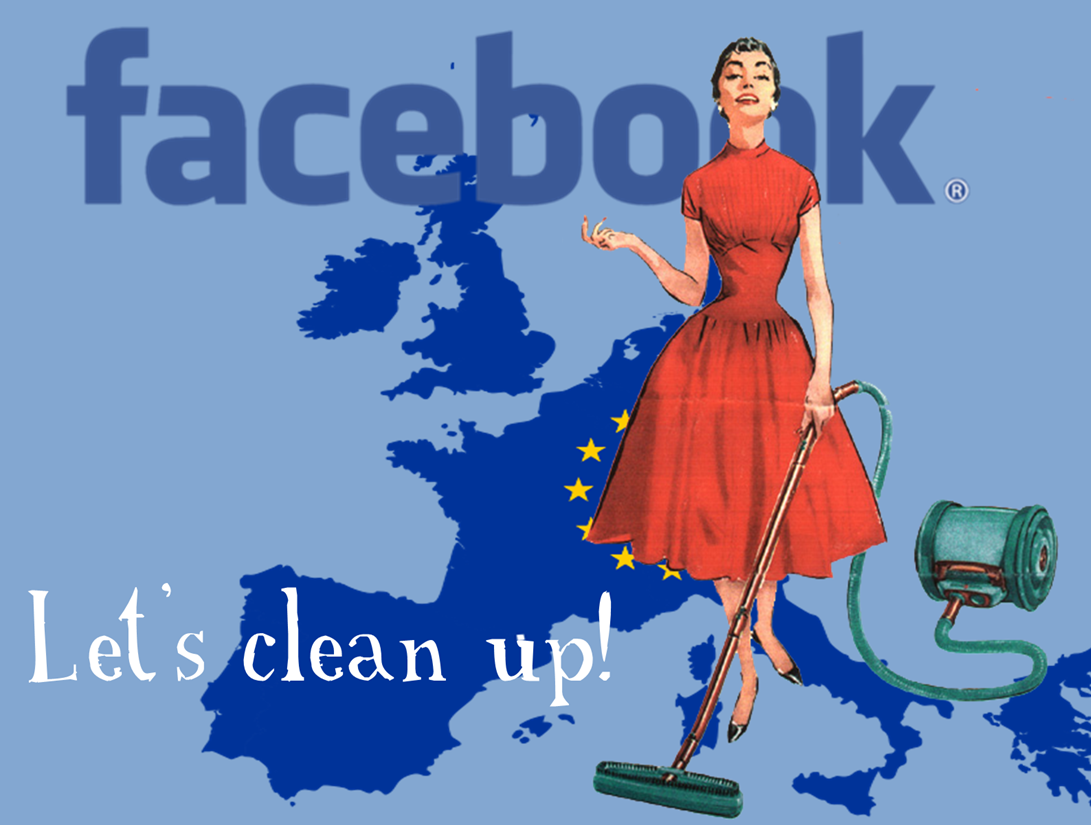 Guenther Oettinger, Europe’s digital economy chief and the German representative on the European Commission has delivered a stark warning to Google and Facebook that they must either comply with the principles of the forthcoming EU General Data Protection Regulation (GDPR) or face being thrown out of the single market.
Guenther Oettinger, Europe’s digital economy chief and the German representative on the European Commission has delivered a stark warning to Google and Facebook that they must either comply with the principles of the forthcoming EU General Data Protection Regulation (GDPR) or face being thrown out of the single market.
Oettinger accused the tech giants of using “an electronic vacuum cleaner” to collect and then target advertising using detailed information of users often without their knowledge or consent.
Speaking to the Wall Street Journal, Oettinger said: “The Americans are in the lead, they’ve got the data, the business models and so the power.”
He predicted that Google and Facebook “will go to the Member States where data protection is least developed, come along with their electronic vacuum cleaner, take it to California and sell it.”
Both tech giants have significant data centres located in Ireland thanks to high-speed fibre coupled with generous tax benefits on profits for tech companies that relocate to Dublin – making this a convenient bridge-head into the European market from which to carry out such activities.
Currently, the GDPR awaiting final agreement between the European Parliament, Council of Ministers and the European Commission and could emerge from the middle of 2015, after which all companies and organisations will have a two-year window to comply or risk significant financial penalties.
Oettinger’s warning comes in the wake of a major report commissioned by the Belgium Data Protection Authority that expressed growing concern about Facebook’s updated terms and policies.
The report will be used by the Belgian Privacy Commission in a probe launched in January 2015 over Facebook’s updated settings and terms and conditions that went live on 31 January.
“Facebook’s revised Data Use Policy is an extension of existing practices. This nevertheless raises concerns because Facebook’s data-processing capabilities have increased both horizontally and vertically,” the report authors said.
“Both are leveraged to create a vast advertising network which uses data from inside and outside Facebook to target both users and non-users of Facebook.”
The report’s authors added that Facebook puts too great a burden on users to sort through complex privacy settings.
At the same time, Facebook has increased its ability to track users elsewhere on the web and its acquisitions of Instagram and WhatsApp have allowed it to collect even more user data where there are natural synergies across all of these social platforms.
To coincide with this, Facebook is using ‘soft power’ in the propaganda war with European Regulators and its critics by running a series of TV commercials in the UK that’s part of a wider campaign featuring billboards and online advertising.
The TV spots focus on how the social network helps to build friendships, using the themes ‘Girl Friends’, ‘Friend Request’ and ‘Our Friends’.
The stories are played out over instrumental versions of classic tracks including Madonna’s ‘Like a Prayer’ and each one has a British voiceover. The ads are brand-focused rather than emphasising a product, aiming to highlight how Facebook ‘creates and sustains friendships’, according to its ad agency.
A poster campaign has also been launched, located at sites such as Oxford Street underground station, showing the image of a tick and the word Friends over a picture of people enjoying each other’s company.
While this is Facebook’s first UK TV advertising push, it has already rolled-out several campaigns in the US, with mixed results, the most famous being its ‘chairs are like Facebook’ spot which was widely ridiculed.
A spokesman for the network, which has 1.3bn global users, said the UK launch aimed to identify the network as a place where ‘friends go to make meaningful connections’.
Facebook remains unrepentant about the revision of its terms and conditions and maintains it’s not doing anything to cause alarm.
“We recently updated our terms and policies to make them more clear and concise, to reflect new product features and to highlight how we’re expanding people’s control over advertising,” explains Facebook spokesperson Matt Stanfield. “We’re confident the updates comply with applicable laws. As a company with international headquarters in Dublin, we routinely review product and policy updates including this one with our regulator, the Irish Data Protection Commissioner, who oversees our compliance with the EU Data Protection Directive as implemented under Irish law.”
Such an argument will wear thin when Facebook faces a more restrictive EU-wide data protection regime under GDPR that will impact its ability to continue such activities irrespective of where it chooses to operate from within the EU.














Recent Comments